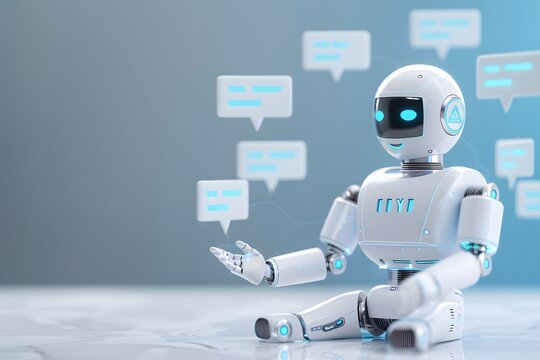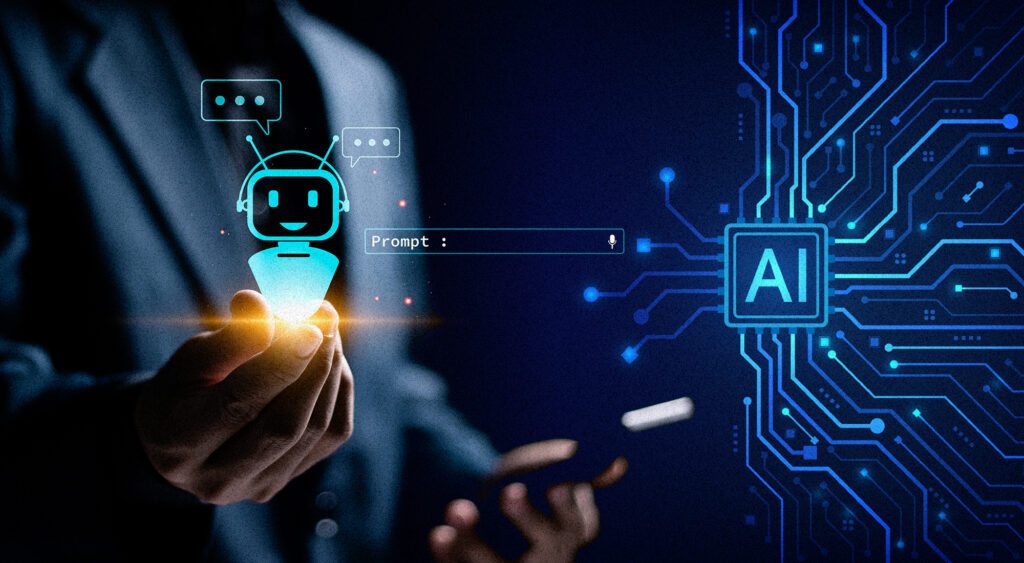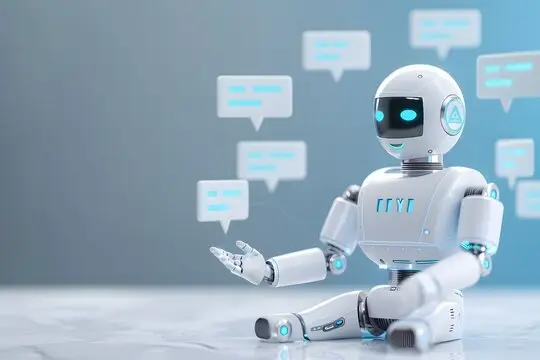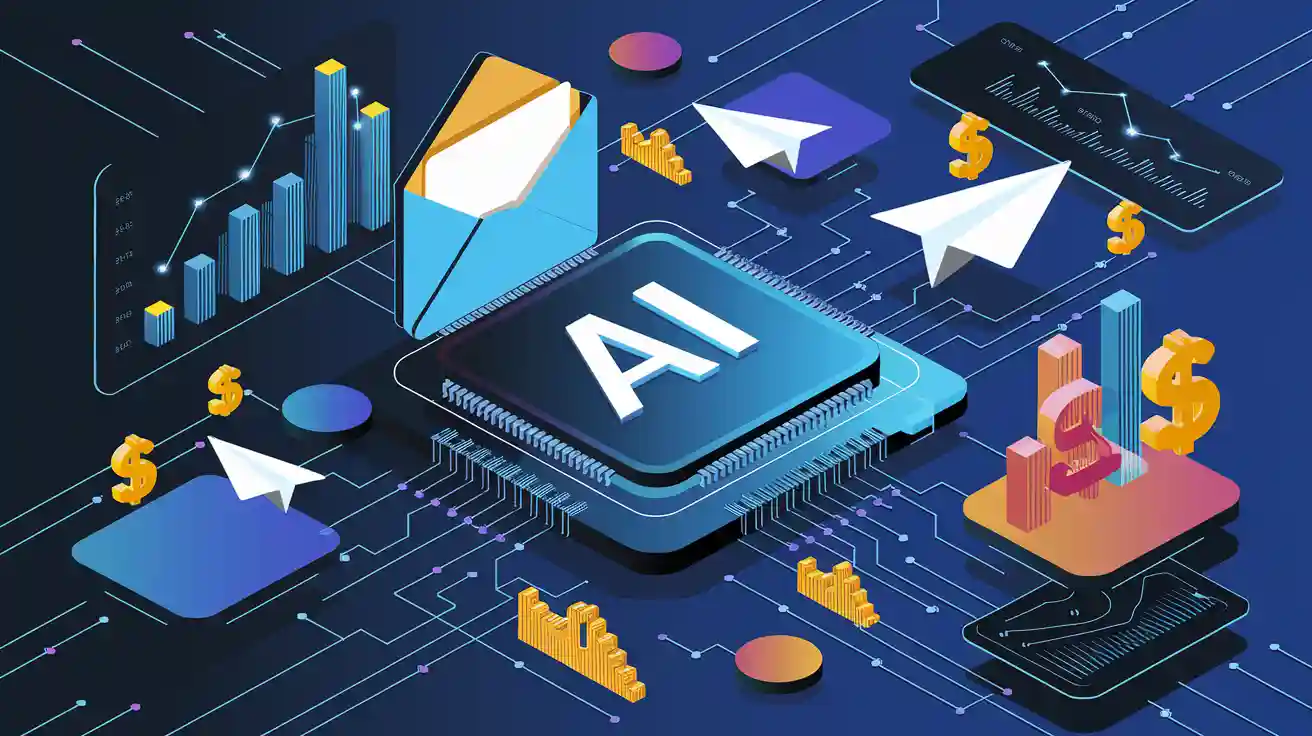The term “chatbot” often conjures images of simple pop-up windows on websites, ready to answer basic customer service questions. While this application remains valuable, the world of artificial intelligence has propelled chatbots far beyond these initial functions. Today, businesses across a multitude of industries are eagerly investing in sophisticated AI chatbots that are revolutionizing their operations, driving efficiency, and unlocking new avenues for growth. This isn’t a futuristic fantasy; it’s a present-day reality. From the intricacies of financial markets to the complexities of human resources, AI-powered conversational agents are becoming indispensable tools.
The modern AI chatbot is a far cry from its scripted predecessors. Powered by advancements in natural language processing (NLP), machine learning, and sentiment analysis, these intelligent assistants can understand context, learn from interactions, and perform a vast array of tasks that were once the exclusive domain of human experts. This evolution has not gone unnoticed by savvy business leaders. The global chatbot market is projected to reach billions of dollars in the coming years, a clear indicator of the immense value and competitive advantage these technologies offer. This article delves into the innovative AI chatbot use cases that businesses are actively acquiring, moving far beyond the realm of simple customer support.

Transforming Finance and Manufacturing: A New Era of Efficiency and Precision
The financial services and manufacturing sectors, traditionally viewed as pillars of the global economy, are undergoing a profound transformation fueled by AI chatbots. In an industry where speed, accuracy, and risk management are paramount, financial institutions are leveraging AI to gain a significant competitive edge. Chatbots are now at the forefront of this revolution, performing tasks that are both complex and critical.
In the world of finance, AI chatbots are being deployed to:
- Enhance Credit Risk Analysis: By analyzing vast datasets in real-time, AI-powered chatbots can assist underwriters in making more informed decisions about loan applications. They can instantly flag potential risks and inconsistencies, leading to a more robust and reliable credit assessment process.
- Bolster Fraud Detection: AI chatbots are becoming the first line of defense against financial crime. They can monitor transactions in real-time, identify unusual patterns, and instantly alert security teams to potential fraudulent activity, significantly reducing financial losses.
- Deliver Personalized Investment Strategies: Forget generic financial advice. AI-powered financial assistants can analyze an individual’s risk tolerance, financial goals, and market trends to provide personalized investment recommendations. These chatbots can also answer complex financial questions in a way that is easy for the average investor to understand.
- Navigate Regulatory Compliance: The financial industry is heavily regulated, and non-compliance can result in hefty fines. AI chatbots are being used to automate compliance checks, monitor regulatory changes, and ensure that all operations adhere to the latest legal requirements.
Similarly, the manufacturing sector is harnessing the power of AI chatbots to optimize every stage of the production process. In an industry defined by its intricate supply chains and complex machinery, the precision and predictive capabilities of AI are invaluable.
Key applications of AI chatbots in manufacturing include:
- Predictive Maintenance: By analyzing data from sensors attached to machinery, AI chatbots can predict when a piece of equipment is likely to fail. This allows for proactive maintenance, reducing downtime and preventing costly breakdowns.
- Guaranteeing Quality Control: AI-powered visual inspection systems, often integrated with chatbot interfaces, can identify defects in products with a level of accuracy that surpasses human capabilities. This ensures a higher standard of quality and reduces waste.
- Optimizing the Supply Chain: AI chatbots are being used to track shipments, manage inventory levels, and even negotiate with suppliers. They provide real-time visibility into the entire supply chain, enabling manufacturers to anticipate disruptions and make more agile decisions.
- Accelerating Research and Development: R&D is a cornerstone of innovation in manufacturing. AI chatbots can assist engineers and designers by quickly retrieving technical specifications, analyzing material properties, and even generating novel design concepts.

Revolutionizing Human Resources and Real Estate: Enhancing the Human Experience
The impact of AI chatbots extends beyond numbers and machines; it’s also about people. In human resources (HR) and real estate, two industries centered on human interaction, AI is being used to streamline processes and enhance the overall experience for both employees and clients.
The modern HR department is tasked with a multitude of responsibilities, from recruitment and onboarding to employee engagement and development. AI chatbots are emerging as powerful allies for HR professionals, automating repetitive tasks and freeing up time for more strategic initiatives.
In the realm of HR, AI chatbots are being utilized to:
- Streamline Recruitment: AI-powered chatbots can screen resumes, schedule interviews, and even conduct initial interviews with candidates. This significantly reduces the time-to-hire and allows recruiters to focus on the most promising applicants.
- Facilitate Seamless Onboarding: New employees are often inundated with paperwork and information. AI chatbots can guide them through the onboarding process, answer their questions about company policies, and ensure they have a smooth transition into their new role.
- Boost Employee Engagement: By acting as a 24/7 resource for employees, AI chatbots can answer questions about benefits, leave policies, and professional development opportunities. They can also be used to conduct employee satisfaction surveys and gather valuable feedback.
In the fast-paced world of real estate, where timely communication and access to information are crucial, AI chatbots are empowering agents and delighting clients.
Innovative uses of AI chatbots in real estate include:
- 24/7 Lead Qualification and Nurturing: AI chatbots can engage with potential clients on a real estate website at any time of day or night. They can answer questions about properties, schedule viewings, and qualify leads, ensuring that agents are spending their time with serious buyers.
- Personalized Property Recommendations: By understanding a client’s preferences for location, price, and property features, AI chatbots can provide highly personalized property recommendations, saving clients hours of searching.
- Streamlining the Transaction Process: From scheduling inspections to coordinating with mortgage brokers, the real estate transaction process involves numerous steps. AI chatbots can automate many of these tasks, ensuring a smoother and more efficient experience for everyone involved.
The Path Forward: Embracing the Future with Prudence
The innovative applications of AI chatbots detailed above are not merely theoretical; they are tangible solutions that businesses are actively investing in to gain a competitive advantage. The benefits are clear: increased efficiency, improved accuracy, enhanced customer and employee experiences, and ultimately, a stronger bottom line. However, the journey to successful AI chatbot integration is not without its challenges.
Concerns about data privacy and security are paramount, particularly in sensitive sectors like finance and HR. It is crucial for businesses to ensure that their chatbot solutions are built on a foundation of robust security protocols and comply with all relevant data protection regulations. Furthermore, the need for human oversight cannot be overstated. While AI can automate a vast array of tasks, the nuanced understanding, empathy, and critical thinking of human professionals remain irreplaceable. The most successful implementations of AI chatbots will be those that augment human capabilities, not replace them entirely.
In conclusion, the era of the simple customer service chatbot is over. We have entered a new age where AI-powered conversational agents are transforming the very fabric of how businesses operate. From the trading floors of Wall Street to the factory floors of a manufacturing plant, and from the HR department to the local real estate agency, AI chatbots are proving to be a powerful force for innovation and growth. The businesses that recognize this and invest in these transformative technologies today will be the leaders of tomorrow.



